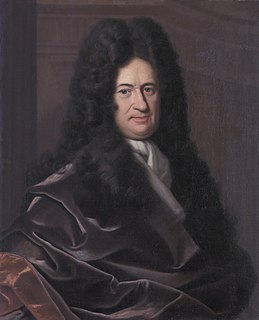
The history of calculus is fraught with philosophical debates about the meaning and logical validity of fluxions or infinitesimal numbers. The standard way to resolve these debates is to define the operations of calculus using epsilon–delta procedures rather than infinitesimals. Non-standard analysis instead reformulates the calculus using a logically rigorous notion of infinitesimal numbers.
In mathematical logic, the Peano axioms, also known as the Dedekind–Peano axioms or the Peano postulates, are axioms for the natural numbers presented by the 19th century Italian mathematician Giuseppe Peano. These axioms have been used nearly unchanged in a number of metamathematical investigations, including research into fundamental questions of whether number theory is consistent and complete.

Abraham Robinson was a mathematician who is most widely known for development of non-standard analysis, a mathematically rigorous system whereby infinitesimal and infinite numbers were reincorporated into modern mathematics. Nearly half of Robinson's papers were in applied mathematics rather than in pure mathematics.

In mathematics, the system of hyperreal numbers is a way of treating infinite and infinitesimal quantities. The hyperreals, or nonstandard reals, *R, are an extension of the real numbers R that contains numbers greater than anything of the form
Non-well-founded set theories are variants of axiomatic set theory that allow sets to contain themselves and otherwise violate the rule of well-foundedness. In non-well-founded set theories, the foundation axiom of ZFC is replaced by axioms implying its negation.
A nonstandard dialect or vernacular dialect is a dialect or language variety that has not historically benefited from the institutional support or sanction that a standard dialect has.
In mathematical logic, in particular in model theory and non-standard analysis, an internal set is a set that is a member of a model.
Lexicographic preferences or lexicographic orderings describe comparative preferences where an economic agent prefers any amount of one good (X) to any amount of another (Y). Specifically, if offered several bundles of goods, the agent will choose the bundle that offers the most X, no matter how much Y there is. Only when there is a tie between bundles with regard to the number of units of X will the agent start comparing the number of units of Y across bundles. Lexicographic preferences extend utility theory analogously to the way that nonstandard infinitesimals extend the real numbers. With lexicographic preferences, the utility of certain goods is infinitesimal in comparison to others.
In mathematical logic, a non-standard model of arithmetic is a model of (first-order) Peano arithmetic that contains non-standard numbers. The term standard model of arithmetic refers to the standard natural numbers 0, 1, 2, …. The elements of any model of Peano arithmetic are linearly ordered and possess an initial segment isomorphic to the standard natural numbers. A non-standard model is one that has additional elements outside this initial segment. The construction of such models is due to Thoralf Skolem (1934).
ISO/IEC/IEEE 42010Systems and software engineering — Architecture description is an international standard for architecture descriptions of systems and software.
Tennenbaum's theorem, named for Stanley Tennenbaum who presented the theorem in 1959, is a result in mathematical logic that states that no countable nonstandard model of first-order Peano arithmetic (PA) can be recursive.
Nonstandard finite difference schemes is a general set of methods in numerical analysis that gives numerical solutions to differential equations by constructing a discrete model. The general rules for such schemes are not precisely known.
In mathematics, a nonstandard integer may refer to
Non-standard analysis and its offshoot, non-standard calculus, have been criticized by several authors, notably Errett Bishop, Paul Halmos, and Alain Connes. These criticisms are analyzed below.
Elementary Calculus: An Infinitesimal approach is a textbook by H. Jerome Keisler. The subtitle alludes to the infinitesimal numbers of the hyperreal number system of Abraham Robinson and is sometimes given as An approach using infinitesimals. The book is available freely online and is currently published by Dover.
The influence of Abraham Robinson's theory of non-standard analysis has been felt in a number of fields.
In mathematics, constructive nonstandard analysis is a version of Abraham Robinson's non-standard analysis, developed by Moerdijk (1995), Palmgren (1998), Ruokolainen (2004). Ruokolainen wrote:
In model theory, a discipline within mathematical logic, a non-standard model is a model of a theory that is not isomorphic to the intended model.
Peter Albert Loeb is a mathematician at the University of Illinois at Urbana–Champaign. He co-authored a basic reference text on non-standard analysis. Reviewer Perry Smith for MathSciNet wrote:
Stanley Tennenbaum was an American mathematician who contributed to the field of logic. In 1959, he published Tennenbaum's theorem, which states that no countable nonstandard model of Peano arithmetic (PA) can be recursive, i.e. the operations + and × of a nonstandard model of PA are not recursively definable in the + and × operations of the standard model. He was a Professor at Yeshiva University in the 1960s.
This page is based on this
Wikipedia article Text is available under the
CC BY-SA 4.0 license; additional terms may apply.
Images, videos and audio are available under their respective licenses.


